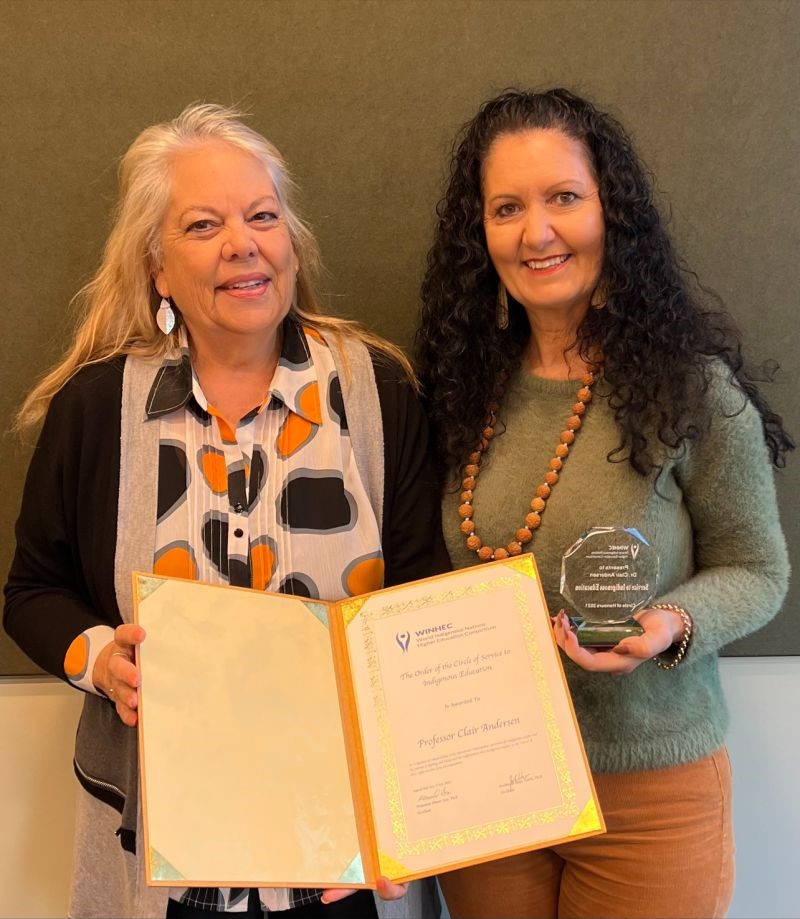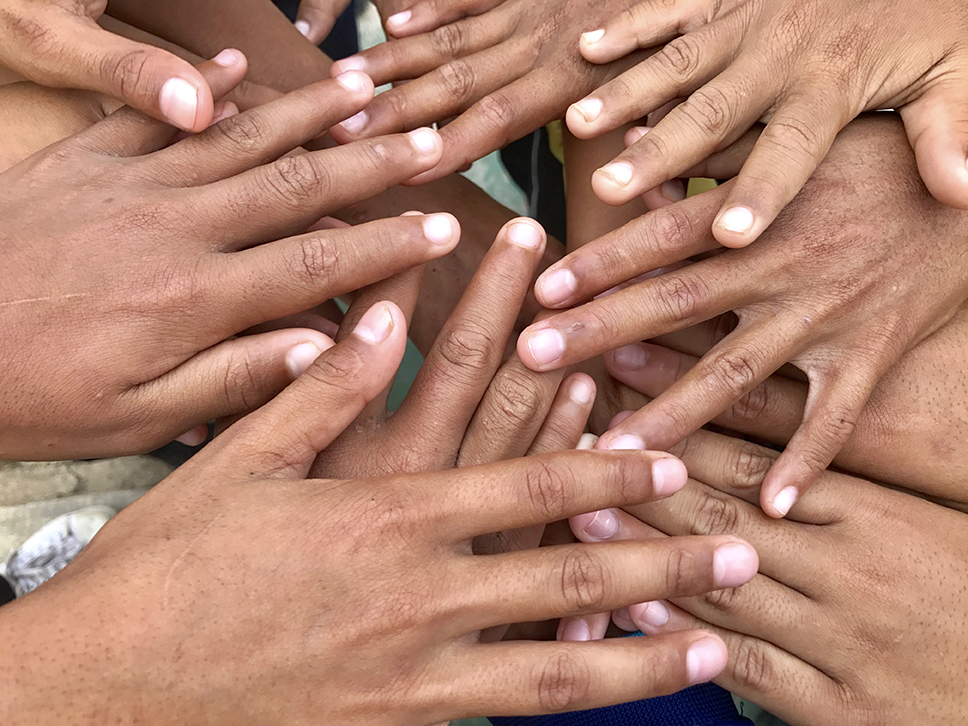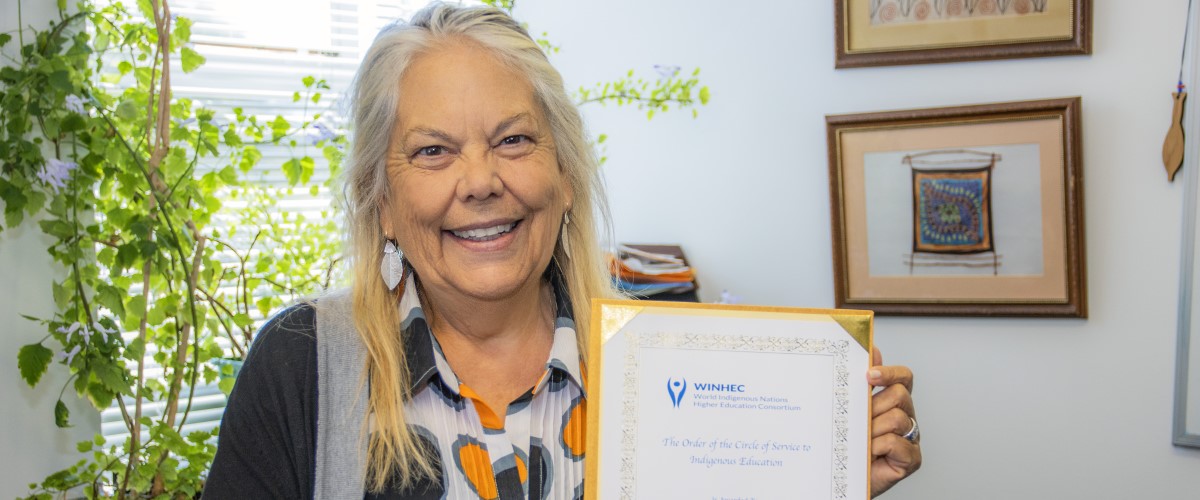Associate Professor Clair Andersen, who has spent a lifetime promoting education opportunities for Australia’s First Nations people, has been recognised for those efforts on an international stage.
She has been inducted to the World Indigenous Nations Higher Education Consortium’s Circle of Honours.
The Consortium (WINHEC) provides an international forum and support for Indigenous peoples to pursue common goals through higher education.
The Consortium (WINHEC) provides an international forum and support for Indigenous peoples to pursue common goals through higher education.

Clair is a Yanyuwa and Gungallida woman from the Gulf Country of northern Australia. When she speaks of the need to provide opportunity to Indigenous people her words are born of her own experience.
“I came from a very small mining town with a lot of alcohol related violence and I couldn’t get out of there fast enough. I was fortunate enough I came to work on a dairy farm in Tasmania and the family I worked for allowed me to go to high school, so I got an education,” she said.
“Eventually I applied for a scholarship to do teaching and worked part time jobs while I got an education and, also worked during the holidays so I had enough money; I always had a job on the side.
“My parents didn’t have any spare money, they had five children and there was no spare money, but they gave me support and encouragement. These things meant I had opportunity.”
Early in her career Clair became involved in helping people to participate in bridging programs that would provide support to lift their confidence by showing them they had the academic ability to undertake further learning.
Her involvement in this field is driven by a desire to improve policy and practice in the area of Indigenous education to enhance student learning.
It has also been about improving our understanding of Australia’s Indigenous people and building better future for them.
That’s how the National Aboriginal and Torres Strait Islander Higher Education Consortium came about. Clair has been involved in the national group from the start.

“We set up the national network, which now has 42 Indigenous Education Units located in universities all around Australia,” Clair said.
“I work with Riawunna at the University of Tasmania, and the whole purpose of the Riawunna unit is to support indigenous students coming to the university.
“I really want to see improved education pathways for Aboriginal and Torres Strait Islander students, and the development of culturally inclusive curriculum to enhance understanding and improve the delivery of health and education services to Indigenous Australians.
“That’s where the national network comes in because it is also there to help us to support each other in our work supporting the students to achieve those goals.
“Within the community there are many Aboriginal and Torres Strait Islanders who have not had the same opportunities as others. It may be that they didn’t finish high school, or they just didn’t know the support was there for them to pursue higher education.
“The work we do helps educate everyone about the benefits of a good education experience.
“By working with these communities we can empower people to achieve new education goals and build their confidence and help them progress, which means we build up role models in the community and then they believe they can do it too.”
Clair has built a legacy with her work, which has resulted in the success of many Indigenous students and staff thanks to her willingness to share her vast experience and to mentor those on a similar pathway.
She said the induction into the WINHEC in the Order of Service to Indigenous Education is an incredible honour, but she is not done yet and her enthusiasm for what she does comes to the surface as she talks about a new student entering the university this year from the Northern Territory.
“Nurtured and supported we can make sure that people can come to university and graduate and go on to achieve amazing things,” she said.
First published in Alumni and Friends eNews.
If you are a member of the University of Tasmania community and would like to receive this publication, please provide or update your email address.
Connect with our alumni community to discover more.
Top of page: Professor Clair Andersen. Image: Peter Allen.



